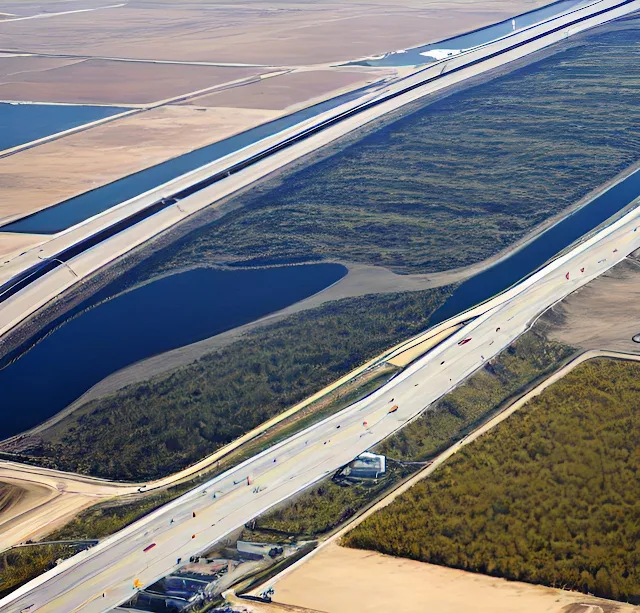Petroleum is a natural resource that has various uses in industry and... It plays an important role in our daily life.From fueling our cars to producing essential petrochemical products, it's an integral part of modern society. In this detailed article, we will delve deep into the world of petroleum, covering its various aspects, including its extraction, uses, environmental concerns, and much more.
Introduction
Petroleum, often referred to as "black gold," is a valuable natural resource that has shaped our world in countless ways. It is a complex mixture of hydrocarbons found beneath the Earth's surface. In this article, we will explore the fascinating world of petroleum, from its origins to its role in our daily lives.
Table of Contents
1. What Is Petroleum?
2. The History of Petroleum
3. Extraction and Refining
4. The Uses of Petroleum
5. Environmental Impact
6. Alternatives to Petroleum
7. Petroleum in the Economy
8. Global Distribution
9. Petroleum and Geopolitics
10. Safety Measures in the Petroleum Industry
11. Future Trends in Petroleum
12. Petroleum and Climate Change
13. FAQs About Petroleum
What Is Petroleum?
Petroleum is a naturally occurring fossil fuel formed from the remains of ancient marine organisms. Over millions of years, the remains of these organisms were subjected to heat and pressure, transforming them into hydrocarbons. These hydrocarbons are the primary components of petroleum.
The History of Petroleum
The history of petroleum dates back thousands of years. Ancient civilizations like the Sumerians and Egyptians used petroleum for various purposes, including as a sealant and in medicinal ointments. However, it was in the 19th century that the modern petroleum industry took shape, with the discovery of oil fields and the invention of the internal combustion engine.
Extraction and Refining
The process of extracting petroleum involves drilling wells deep into the Earth's crust. Once extracted, it undergoes a complex refining process to separate it into various components such as gasoline, diesel, and jet fuel. This refining process ensures that petroleum can be used for a wide range of applications.
The Uses of Petroleum
Petroleum is incredibly versatile and is used in various industries. It is a primary source of energy for transportation, heating, and electricity generation. Additionally, it serves as a feedstock for the production of plastics, chemicals, and pharmaceuticals.
Environmental Impact
While petroleum has numerous benefits, its extraction and use have significant environmental consequences. Oil spills, air pollution, and greenhouse gas emissions are some of the environmental challenges associated with petroleum.
Alternatives to Petroleum
As concerns about the environmental impact of petroleum grow, researchers and innovators are exploring alternative energy sources such as renewable energy and electric vehicles. These alternatives aim to reduce our reliance on petroleum and mitigate its environmental effects.
Petroleum in the Economy
Petroleum plays a vital role in the global economy. It influences currency values, trade balances, and geopolitical relations. Fluctuations in petroleum prices can have far-reaching economic consequences.
Global Distribution
Petroleum reserves are not evenly distributed worldwide. Some countries have vast oil reserves, while others rely heavily on imports. This distribution affects global trade and politics.
Petroleum and Geopolitics
The geopolitics of petroleum is a complex and often contentious issue. Control over oil reserves can lead to conflicts and power struggles among nations. Understanding these dynamics is crucial for international relations.
Safety Measures in the Petroleum Industry
Safety is paramount in the petroleum industry. Strict regulations and safety protocols are in place to prevent accidents and protect workers. The industry invests heavily in safety measures.
Future Trends in Petroleum
The future of petroleum is evolving. Innovations in technology and a growing emphasis on sustainability are shaping the industry's future. We can expect to see changes in how petroleum is produced, refined, and used.
Petroleum and Climate Change
The combustion of petroleum products is a major contributor to climate change. Efforts to reduce carbon emissions are pushing the industry to explore cleaner and more sustainable alternatives.
FAQs About Petroleum
Q: What are the main types of petroleum products?
Petroleum products include gasoline, diesel, jet fuel, and various petrochemicals used in the production of plastics and chemicals.
Q: How is petroleum extracted from the ground?
Petroleum is extracted by drilling wells into underground reservoirs and pumping it to the surface.
Q:Is petroleum a finite resource?
Yes, petroleum is a finite resource, and its reserves are depleting over time.
Q: What are some common environmental challenges associated with petroleum extraction?
Common challenges include oil spills, habitat disruption, and groundwater contamination.
Q: Can we replace petroleum with renewable energy sources entirely?
While the transition to renewable energy is underway, complete replacement of petroleum is a complex and long-term process.
Q: How can individuals reduce their petroleum consumption?
Individuals can reduce petroleum consumption by using public transportation, carpooling, and adopting energy-efficient practices.
Conclusion
Petroleum, a vital resource in our modern world, has a rich history and a multifaceted role in our lives. From its extraction and refining to its diverse uses and environmental impact, it continues to be a topic of global significance. As we move toward a more sustainable future, understanding the complexities of petroleum is essential.

Comments
Post a Comment